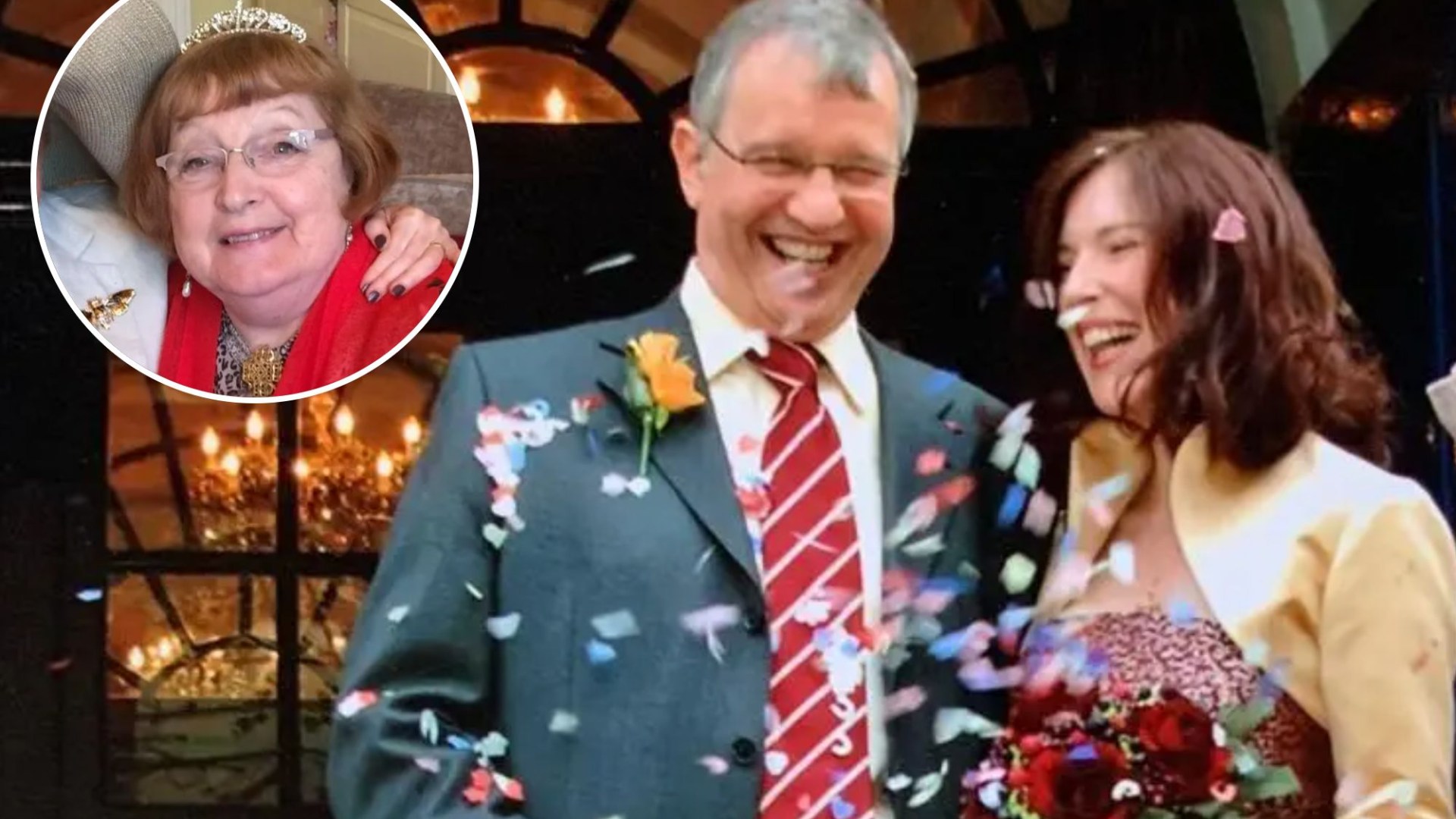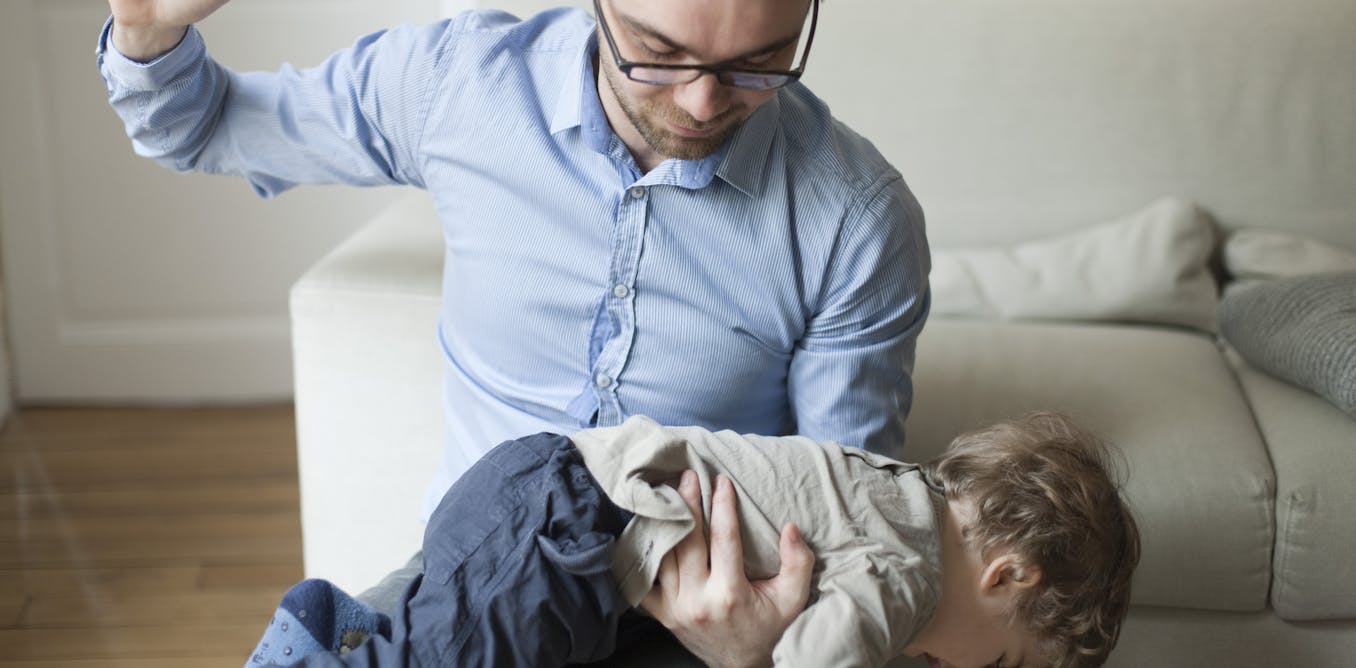ZOE Marley-Hyatt prays a ‘yes’ majority vote for the Assisted Dying Bill will spare loved ones the pain her own family has gone through.
For in less than three years, she watched both her mum, Judith, and husband, Andrew, end their own lives.
9

9

9

9
Their agonising terminal illnesses left them with zero quality of life.
The fallout of their decision was to leave Zoe feeling “like a criminal” and being quizzed by police for hours – because current laws throughout the UK prevent people from asking for medical help to die.
Backbench Labour MP Kim Leadbeater’s Terminally Ill Adults (End of Life) Bill could change the legal position in England and Wales.
If passed, the Bill would allow terminally ill adults in England and Wales with less than six months to live the option to end their lives legally, with medical assistance.
For mum-of-one Zoe, 57, from Cromer, Norfolk, a law change would have made the world of difference to her own situation.
In June 2021, Zoe’s husband Andrew, 72, a retired dentist and former biochemist, made the devastating decision to assist his own dying.
Zoe says: “We talked about him going to Dignitas [in Switzerland] [in Switzerland] but he said, ‘I’m an English man and I want to die on English soil’.”
Diagnosed with advanced colon cancer in 2019, Andrew had watched the disease rob him of his independence and dignity.
Zoe says: “Andrew was such a proud and intelligent man.
“He was sharp, funny, and full of life. But cancer changed everything. He hated the idea of becoming a burden or losing control of his body.
“When his health deteriorated to the point where I was changing him, he said, ‘This is humiliating and degrading.’
“He’d go to the point where his whole body had swelled up with an edema and he couldn’t do his personal business by himself.
“He said, ‘My life is wretched. Your life is wretched’.
“He had said, ‘If it gets to a point where I don’t want to go on, I want a plan’. I said, ‘This is your choice. I am here to support you, as your wife’.
“If the Bill gets passed today I imagine he would be overjoyed and say, ‘It’s about time’.”
Determined to take control of his fate, Andrew researched how to end his life peacefully.
On the day he chose to die, the couple shared an intimate goodbye.
“We played Bruch’s violin concerto, his favourite piece of music,” Zoe says.
“I put on a wrap dress, a black and white patterened one.
“We opened a bottle of Krug champagne and toasted to the beautiful life we had shared. He told me, ‘You’re still such a beautiful woman’.”
Andrew drank the concoction he had prepared and slipped away peacefully as Zoe held his hand. But the relief of seeing his suffering end was marred by a deep sense of fear and isolation.
“I felt like a criminal,” Zoe admits.
“When I called the GP and the funeral directors, I was terrified someone would think we’d done something wrong.
“The law made it feel like his choice to die with dignity was a crime.

9

9

9
“Andrew had wanted to escape this horrible death but if he chose to assist himself to die he was terrified that he was leaving me behind in a mess.
“It felt as though there was even more pressure on us as a family to do things right.”
MY MUM HATED HOW SHE ‘SMELT OF DEATH’
Andrew’s diagnosis came just 11 months after Zoe’s mother Judith, 75, had ended her life, in August 2018.
Witnessing Judith’s deterioration had made Andrew feel even more determined to take control of his own end.
Judith – who lived with Zoe, Andrew and their daughter Isabelle, now 29 – was diagnosed with an aggressive and rare form of skin cancer called lentiginous melanoma in January 2018.
The retired florist had always been full of life but the disease took everything from her.
A cancerous lesion on her heel spread to her brain and groin, leaving her in constant pain and deeply distressed.
If we’d have had this Bill in place… my mum wouldn’t have been so desperately injured by attempting to kill herself
Zoe
“Mum hated the smell of her wound,” Zoe remembers.
“She used to say, ‘I smell of death’. She didn’t want to spend her last days in agony.”
In July 2018, Judith attempted to end her life by overdosing in Zoe’s garden, surrounded by her beloved flowers. But she survived.
Zoe says: “When I found her unconscious in the garden I knew that she wanted to die.
“My husband was there and we didn’t know what to do. We thought: ‘Are we supporting a suicide by being inactive?’”
When it grew dark and the temperature dropped, an ambulance was called and Zoe found herself in a standoff with medics who wanted to take her mum to hospital.
The police were called but eventually a senior doctor ruled that as Judith was subject to a do not resuscitate order and Zoe had power of attorney, she should just be moved inside.
However, Judith survived the attempt and was left shattered by it.
Zoe says: “She was in absolute despair when she realised she hadn’t achieved her end.
What is ‘assisted dying’?
Assisted dying refers to when a person, typically suffering from a terminal illness or incurable condition, is provided with the means to end their own life.
In some places it is legal under strict conditions, but in others it is illegal.
Pro-change campaigners Dignity in Dying argue that, along with good care, dying people who are terminally ill and mentally competent adults deserve the choice to control the timing and manner of their death.
The campaign group Care Not Killing uses the terms “assisted suicide” and “euthanasia”.
It is against the Bill and argues that the focus should be on “promoting more and better palliative care” rather than any law change.
“I’d never seen her so emotionally and physically broken. She was struggling to walk anyway but now she couldn’t walk at all.”
A month later, Judith tried again and succeeded. But the experience was far from peaceful.
“It was traumatic,” Zoe says, who believes things could have been so very different if a law for Assisted Dying had been in place back then.
“If we’d have had this Bill in place and operating then, it would actually have been a very different journey through her diagnosis to death.
“It would have given her enormous comfort. Her quality of death would have been better.
“My mum wouldn’t have been so desperately injured by attempting to kill herself.
“We could have been spared all the pain and stress and drama after the first attempt to take her life.
“You also don’t know if Police are going to come knocking at your door saying they feel it was an assisted suicide bceause I had resisted them taking her to hospital the first time.
“The Government talks about saving money but what about the cost of the process which followed? We had to wait six months for her autopsy which was just so distasteful.”
MY EYES ARE OPEN TO THE SUFFERING
Assisted suicide is illegal in the UK. But no Brit has been prosecuted for accompanying a relative to Switzerland, where assisted dying is legal.
Currently, those who can afford it travel to clinics like Dignitas. But for many, the cost, up to £10,000, is out of reach.
Dignity in Dying estimates between 300 and 650 terminally ill people take their lives each year, with 10 times as many attempts.
Campaigners like Zoe believe the law would provide peace of mind for those facing unbearable suffering.
This isn’t about euthanasia or going down some slippery slope. It’s about compassion, dignity, and choice.
Zoe
Last year Zoe shared her story with the Commons Health and Social Care Committee alongside others, to provide evidence for its assisted dying inquiry.
She praises Esther Rantzen, who’s daughter Rebecca Wilcox she has met, for piling pressure on politicians to make a historic change.
She says: “Talking to other people who have gone through similar things or are terminally ill has only bolstered my resolve to keep campaigning. It has really opened my eyes to so much suffering in this country.

9

9
“This is about compassion. It’s not about encouraging death; it’s about giving people the right to control how and when they die.
“Why should anyone be forced to suffer when there’s a kinder option?”
Opponents of the Bill raise that one of the main concerns is the risk of vulnerable people being coerced into ending their lives.
Campaign group Care Not Killing argue that legalising assisted dying – what they call “assisted suicide” – could “place pressure on vulnerable people to end their lives for fear of being a financial, emotional or care burden upon others” and argue the disabled, elderly, sick or depressed could be especially at risk.
MP Wes Streeting warns that assisted dying could lead to further cuts to NHS services.
Zoe says: “We’re talking about people’s lives here – the quality of their death – so it’s simply not acceptable to make this about money.
“At the moment, people are taking desperate measures in secret.
“We’re not gathering any data about these deaths. There’s no transparency, no safeguards.
“The Assisted Dying Bill would actually protect people by bringing everything out into the open.”
Under the proposed law, doctors would be trained to detect signs of coercion, and every case would be reviewed by a High Court judge.
“This isn’t about euthanasia or going down some slippery slope,” Zoe says firmly.
“This is about giving terminally ill people the right to die on their own terms. It’s about compassion, dignity, and choice.
“We’re supposed to be a compassionate, civilised country but we’re failing the most vulnerable.
“If this law had been in place, Mum wouldn’t have had to go through the trauma of a failed suicide attempt,” she says.
“She could have lived her final weeks without fear, knowing she had control over her death. Andrew wouldn’t have felt like a criminal for making the choice to end his suffering.”




